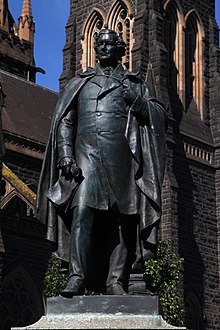This is an old revision of the document!
Irish context
It is necessary to know something of the sad history of imperialism to understand M-P history. Ireland was a prime example of a colonised land whose purpose was to fund and keep the colonising country secure. To achieve those ends, the English tried to crush Irish nationalism and reduced the mass of the Irish to grinding poverty. The religious element was equally important – the Penal Laws oppressed and restricted Catholics in a myriad of ways. It was not until 1778, for example, that Catholics were allow to hold long leases; not until 1782, that they had the same rights as Protestants to buy and bequeath land.1) That so many Priors/Murray-Priors in Ireland were Members of Parliament and/or in the British army is noteworthy – but we need to realise that they did so in the context of these Penal Laws. Before 1829, and the passing of the Roman Catholic Relief Act Catholics were not eligible to be members of the British parliament. Joining the army was easier for Catholics after the 1778 Papists Acts, but their loyalty tended to be questioned, especially in the higher ranks. Protestants in Ireland then, had greatly enhanced career opportunities and a vested interest in the status quo.
 Photo: Section of Dublin memorial to victims of potato famine, 1845-52. Around one million people died while landowners continued to export food. Neither church nor state provided much help. TLM-P's grandfather, the last of his direct family to live in Ireland, died just after the famine, in 1854.
Photo: Section of Dublin memorial to victims of potato famine, 1845-52. Around one million people died while landowners continued to export food. Neither church nor state provided much help. TLM-P's grandfather, the last of his direct family to live in Ireland, died just after the famine, in 1854.
A proportionately more devastating famine was 'the great frost' of 1740-41. A sickening estimate is that nearly 40% of the 2.4 million people in Ireland died as a result of that climate change, again while little help was extended.
While the Murray-Priors benefited from being Anglo-Irish Protestants, the later generations identified with the Irish cause. Tom Prior is the family's shining light in this regard, but note too that the teenage TLM-P, emigrating alone to Australia, was quick to repudiate the extreme sectarianism that still inflicts Ireland today. Here is how he recalled the incident:
'We had one curious specimen among us [passengers], a Mr Goodson,2) the son of an Irish clergyman and a rank Orangeman 3) a rough rawboned uncultivated broth of an Irishman, some 6ft4) high with a tremendous brogue, who had never before been out of his native village, by his own account a dead shot, a hard rider, and one who feared neither man nor devil. He joined us at Plymouth and the first day after dinner, he got up before the ladies left to propose the following toast:
“to the pious and immortal memory of the great and good King William, and whoever will not drink this toast may he be rammed, dammed and crammed into the great gun of Athlone and sent to the Devil with the keys to the gate of Hell in his pocket”.
This common Orange toast being as new to most of the passengers as it was to myself, caused much astonishment among us, and out of pure mischief I stood up and cried out: “Ladies and Gentlemen fill your glasses a bumper. Mr Goodwin! No heel taps! To the greatest man Ireland ever produced.” Mr Goodwin drank it with the rest and then asked whom I meant. When I told him Daniel O'Connell, he dashed his glass to the ground and ever after looked upon me as a Roman, a Jesuit and an enemy.'5)
 Statue of the object of TLM-P's toast, Daniel O'Connell, known as The Liberator of Ireland, outside St Patrick's Cathedral, Melbourne.
Statue of the object of TLM-P's toast, Daniel O'Connell, known as The Liberator of Ireland, outside St Patrick's Cathedral, Melbourne.
TLM-P's daughter Rosa Praed also worked for Irish home rule at a time when that was a radical act.
Another influence of Ireland on the family was less commendable. The attitude of the Anglo-Irish ruling class was all too easily transferred to the colony of Australia, were similar attitudes prevailed towards the indigenous inhabitants and their claims to full humanity and their ancestral land (see Rural Life and Tragedy).